Who Has the Ultimate Authority? A Biblical Look at Sola Scriptura
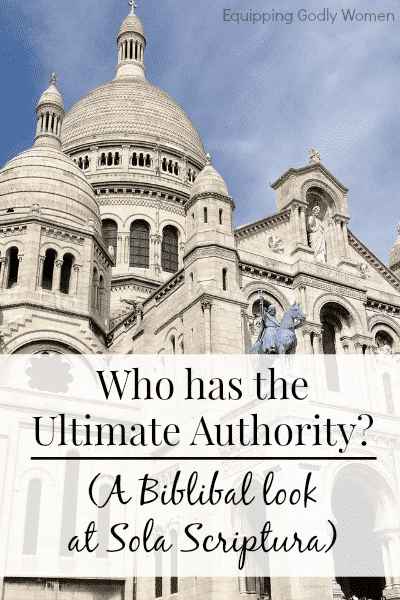
This post is post 5 in a series entitled Letting God Lead: My Journey Through Protestant and Catholic Beliefs. While you certainly can read this post by itself, I highly encourage you to check out the rest of the series as well. Find more about this series and a list of all of posts here. *This post contains affiliate links.
Pilgrimages are rarely easy, and my journey through Protestant and Catholic beliefs has certainly been no exception. When I first began this journey, I though I’d be looking through the issues one by one, checking off boxes on an imaginary master checklist. Instead, it’s been a jumbled mess of facts, opinions and emotions. And every time I turn around, another piece of foundation crumbles away, leaving me feeling shaky and uncertain.
I’m a lifelong Christian, a Bible college graduate, a teacher, a mom, and a Christian blogger. I’m supposed to have all the answers. I don’t like feeling uncertain. And yet that’s exactly what this journey has been.
My findings on the Eucharist were the first huge chunk of foundation that I felt being pulled out from under me. Today’s post, on the authority of the Bible and Church Tradition, was the second. Honestly, I swear I almost felt the ground move. It was like everything suddenly shifted, even if I didn’t know what it all meant at first (or even still).
When I sat down to map out this series, I initially was going to save this post for last. It’s kind of like the period at the end of the sentence, and if you really accept and embrace it, none of the rest of the posts will matter much. But then I realized I needed to move it up. Because it also provides a framework that will be essential as we dive into the remaining posts.
[thrive_leads id=’23166′]
A Protestant View of the Bible
Several months ago, I read a post on Catholic.com that would change my perspective forever. In Should Catholics go to Non-denominational Bible Studies?, author Steve Ray highlights four tenants Protestants generally believe about the Bible.
- Scripture is the only binding authority.
- There is no official interpretation or interpreter.
- The Bible is easy to understand.
- Each individual can and should read and understand the Bible for himself.
Yes. I definitely recognized these teachings from my Protestant upbringing. Growing up, I was taught that the Bible was the absolute authority on everything it spoke about. The Bible was never wrong, and if you wanted an answer to some pressing theological or moral dilemma, all you had to do was simply open the Bible, read what it said and you’d find your answer.
In fact, in the back of many Protestant Bibles, you’ll even find extensive reference sections to help you quickly locate a great verse on any topic you like. The Bible I received when I graduated high school has the following sections (and more):
- Well-known Biblical Events
- Parables of the Old Testament
- Miracles of the New Testament
- Teachings of Jesus
- Promises from the Bible
- Dictionary
- NIV Concordance
- Index to Subjects
- Index to Articles
No matter what problem or struggle I was facing, all I had to do was open the Bible, and the answer would be waiting for me right there on the page, plain as day. What more could I need?
A Catholic View of the Bible
Ray then goes on to list four major Catholic beliefs regarding the Bible, with Scripture references for each.
- The Church preceded the Bible and the Tradition of the church is an equally infallible authority.
- The interpretation of the Bible is the prerogative of the Catholic Church.
- The Bible is not easy to understand.
- Individuals should read the Bible for themselves, but within the framework of the Church’s authoritative teaching and not based on their own private interpretation.
And the more I thought about it and researched it… I worried… Uh oh. Could they be right? Here’s what I found.
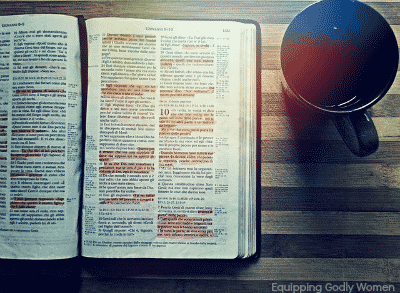
1. The Bible Wasn’t Around Right Away
With our constant and easy access to the Bible today, it’s easy to forget that the first century Christians weren’t so lucky. The Bible books may have begun circulating in the first century, but it wasn’t until the late 4th century that canon was officially decided upon–300 years after the last apostle died. And even after the Bible was compiled, the printing press wasn’t invented yet, so the Bible still wasn’t available to the average lay person.
So how did the early Christians learn about Jesus? They had to look to the church. The church was the authority from the beginning. It had to be.
2. The Bible Was Written by the Apostles
Secondly, there’s the fact that not a single word of the Bible was written by Jesus himself. The Bible isn’t this stand-alone authority that came down from Heaven to answer our questions. Who wrote the New Testament? The church.
And if the church had the authority and ability to author the Bible (under the direction of the Holy Spirit, of course) and to make an infallible decision as to which books made the cut two thousand years ago, then what is stopping the church* from maintaining that same authority and infallibility today? Or did they just happen to have a lucky guess once?
*Just to be clear, I’m talking about official church doctrine ONLY, not how individual Christians do or do not live it out.
The Bible doesn’t have authority because IT says so; it has authority because the Church says so. The Bible is a gift from the church, not the head of the church.
3. The Bible Isn’t a Comprehensive “How-to Guide”
Furthermore, we have to consider the purpose behind WHY the Bible was written. The apostles never sat down to write an official “how-to guide” that would address every issue. Instead, they wrote letters concerning very specific issues to very specific churches and individuals. The Bible was never meant to be an exhaustive source, but a helpful tool.
So yes, the Bible does hold authority on everything it teaches, but there are plenty of things it doesn’t teach on. So… how do we know the answer for the things the Bible doesn’t teach on? Who gets to decide?
4. There is NO Scriptural Basis for “Sola Scriptura”
Did you know that nowhere in the Bible does it teach the idea that we are to rest on the Bible alone? It says it is good for teaching, but it does not say it is the ONLY source of good teaching.
“All Scripture is God-breathed and is useful for teaching, rebuking, correcting and training in righteousness, so that the servant of God may be thoroughly equipped for every good work.” –2 Timothy 3:16-17
In fact, it actually says the Church is the foundation of truth–not the Bible.
“if I am delayed, you will know how people ought to conduct themselves in God’s household, which is the church of the living God, the pillar and foundation of the truth.” –1 Timothy 3:15
And when Christians had disputes, were they instructed to go to the Bible to see what it said? No, they were to take their disputes in front of the church–whether that was a minor dispute among brothers or a major theological discussion for which they had to hold a council.
5. Interpretations Vary Widely
Visit a couple churches (or read the comments section of this series!!) and you’ll quickly see that even the most knowledgeable and devoted Christians use the Bible to support all sorts of positions–many of which are in direct disagreement. Obviously there can only be one truth–so how do we know which interpretation is correct?
In Surprised by Truth, Bob Sungenis writes “I finally understood the value and necessity of Sacred Tradition. Tradition did not contradict the Bible, rather, it supported and made it clearer.”
Additional clarifying information… that’s what I had to find for the Eucharist post too. When all you have are the words “This is my body,” it’s easy to take them several different ways. But combine Scripture with history and Tradition, and a clearer, more accurate, picture begins to emerge. The new picture never contradicts the Bible; it simply clarifies it.
If just reading the Bible for ourselves was enough, we wouldn’t come up with 100 different interpretations. Clearly we need more information.
6. Jesus Promised to Send the Holy Spirit
Okay, I’ll admit I don’t find this argument that convincing personally, but from what I’ve heard it’s a HUGE one for Catholics, so I’m going to include it anyways and you can take it for what you will.
Essentially, Catholics believe that Jesus sent the Holy Spirit to guide them into all truth and to keep them on the right path based on these verses:
“I have much more to say to you, more than you can now bear. But when he, the Spirit of truth, comes, he will guide you into all the truth. He will not speak on his own; he will speak only what he hears, and he will tell you what is yet to come. He will glorify me because it is from me that he will receive what he will make known to you. All that belongs to the Father is mine. That is why I said the Spirit will receive from me what he will make known to you.” –John 16:12-15
“And I will ask the Father, and he will give you another advocate to help you and be with you forever” –John 14:16
“I will not leave you as orphans; I will come to you.” –John 14:18
“And surely I am with you always, to the very end of the age.” –Matthew 28:20b
Personally, I don’t see that these verses are talking about the church as a whole and not individuals, or that they are talking about official Catholic beliefs in particular instead of the church as a whole. I also don’t see that this means that we will never err. It says the Holy Spirit will LEAD us. That doesn’t necessarily mean we will follow.
BUT, I have to admit, for the church to hold so unwaveringly to its teachings from the first century until now, when so many denominations have fallen away and believed whatever they wanted too–well, that is pretty impressive. I’ll give them that 🙂
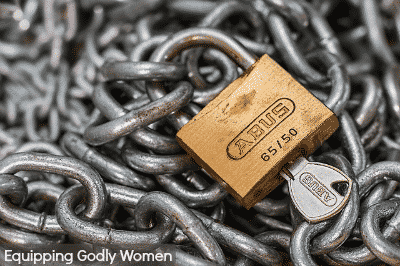
7. Power of Binding and Loosing
BUT the best reason of all can be found in these verses in the Bible:
“I will give you the keys of the kingdom of heaven; whatever you bind on earth will be bound in heaven, and whatever you loose on earth will be loosed in heaven.” –Matthew 16:19 (see also Matt. 18:18)
“Whoever listens to you listens to me; whoever rejects you rejects me; but whoever rejects me rejects him who sent me.” –Luke 10:16
In other words, Jesus gave the Church the authority that whatever they say goes. That’s a pretty big responsibility, and a whole lot of power.
It’s like when I have a babysitter come over watch my children. The babysitter is expected to have the kids follow my house rules as long as she knows them. But obviously I can’t write down what I would ask in EVERY single situation. So while I’m gone, I entrust my children to the babysitter and let her call the shots. While I’m gone, she has the authority to make and carry out any rules that she likes, as long as they are in line with what she knows to be true about me and the way I expect my children to behave.
It’s the same with the church. God is the ultimate authority. The Bible lists some rules and guidelines, but cannot possibly cover them all. So it’s up to the Church to lead and guide and enforce the rules as best she can with the knowledge she has in the meantime. And as long as she’s left in charge, what she says goes. God has given her that authority.
So how do we know the Church didn’t get off by 5 degrees and is now way off course? Well, because Jesus said what is bound on earth is bound in Heaven… so as long as they aren’t WAY off (and the consistency of doctrine from the first century til now should assure us that they’re not), then… as long as they are doing their best–what they say goes.
And that’s about all there is to that.
A Brief Clarification on Tradition
Many Protestants are raised to believe that tradition is bad since Jesus denounces man-made tradition in verses such as Matthew 15:3-9 and Mark 7:1-15. What you need to know, however, is that Jesus wasn’t denouncing ALL tradition. If you read the verses, you’ll see he’s actually denouncing the fact that they people were holding on to letter of the law while forgetting the spirit. In other words, they were being legalistic.
Tradition itself isn’t bad. Even Protestant churches have plenty of traditions. It’s when those traditions take the place of the real heart of the matter that they become a problem.
Furthermore, Catholics differentiate between two types of tradition: “Big T” Tradition and “little t” tradition. Big T Tradition is official church doctrine and teaching that has been handed down throughout history since the time of the apostles. It doesn’t change. For example, the fact that Jesus was born of a Virgin and that he died and rose on the third day. Scripture strongly supports this type of tradition.
“So then, brothers, stand firm and hold to the traditions that you were taught by us, either by our spoken word or by our letter.” –2 Thessalonians 2:15
“Now I praise you because you remember me in everything and hold firmly to the traditions, just as I delivered them to you.” –1 Corinthians 11:2
“Little t” tradition are the things the church teaches (because she has the authority to do so) that aren’t in the Bible specifically and that can be changed. For example, the fact that priests are not typically allowed to marry. This is a little t tradition and could be changed.
And then there’s the whole Catholic culture, which is chock FULL of all kinds of fun (weird) things Catholics do just because they can and like to–but that are completely optional. (Praying to the Saints, making the sign of the cross, saying Scripted Prayers etc) But that’s a topic for another day. 🙂
I’d love to hear your thoughts and opinions!! Leave me a note (or a book 🙂 ) in the comments section below!
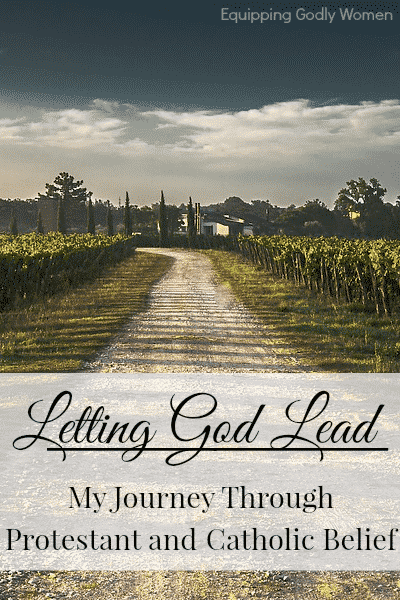
Enjoyed this post? Don’t miss the rest of the posts in the series!
The Day I Realized My Religion Got it Wrong
10 Common Catholic Church Myths that Critics Believe
Is the Eucharist Really Just a Symbol?
Who has the Ultimate Authority? A Biblical Look at Sola Scriptura
A Brief Look at the History of Christianity
What All Christians Should Know About Priests, the Pope and Confession
What Do Catholics Really Believe About Mary, Saints and Statues?
Infant Baptism or Believer’s Baptism? Which is Correct?
What is Purgatory? What are Indulgences?
Why Do Catholics….? Honest Answers to Your Burning Questions
Protestant and Catholic Beliefs Series Conclusion
Resources
I’m not asking you to believe because I say so. Please DON’T take my word for it! The purpose of this series is only to share what I’ve learned on my journey in order to inspire you to begin a journey of your own. Here are a few helpful resources to get you started.
*This post contains affiliate links, which means if you make a purchase, I may make a small commission at no additional cost to you. Thank you!
Catechism of the Catholic Church
Surprised by Truth: 11 Converts Give Biblical and Historical Reasons for Becoming Catholic by Patrick Madrid



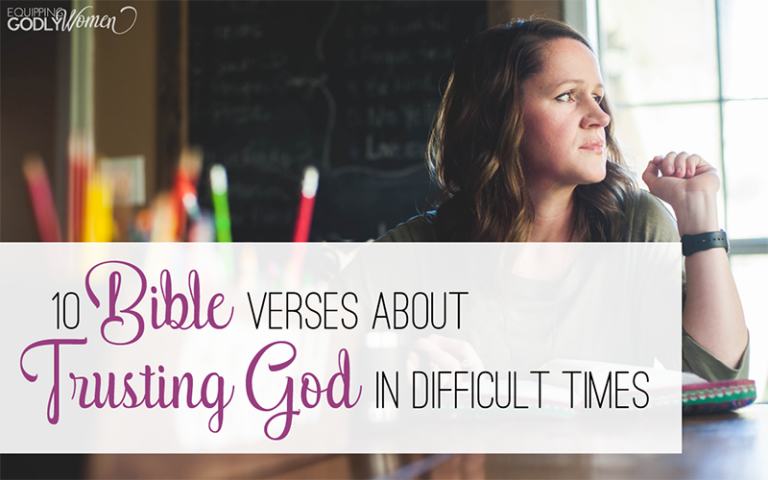

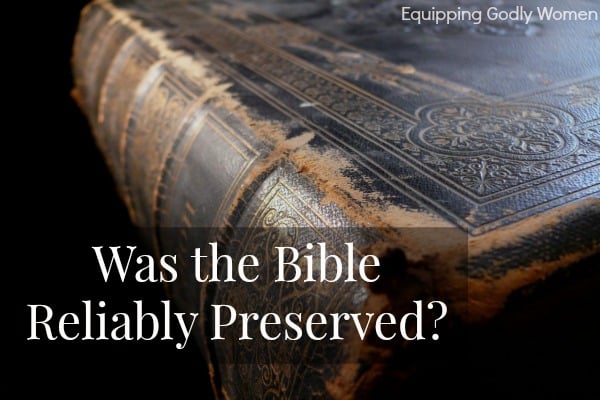


“In the beginning God created.” Either you believe that God is authority or man. God existed before the church.
Yes, no one argues that God doesn’t have the ultimate authority. He does. The question is — who is next in command? Did Jesus write a book for us to follow? Or did he start a church to lead us? (My vote is he equipped the first disciples, who started a church, who wrote the book. The book came from the church, not the other way around)
Maybe you have already said, but what is the church?
I mean, if the top church leaders get together… is that the church getting together?
Not to be cliche… but am I, and a disciple of Christ, not in one sense the church? And isn’t the authority I have from the Spirit of God in me?
I think the definition of “the church” depends on the context you are talking about. Yes, we are all “the church,” but if every single person had equal say about what Scripture really means, that sounds like a recipe for disaster to me. I mean, there are over 30,000 Protestant denominations now–obviously not all can be right. But who is to say which version of Christianity is true?
GRACE And Peace to you, Brittany! Thank you for your kind response and the
post to check out with much detail. As for myself, my “pilgrimage” has been the
”opposite” of yours – Catholic first, then Protestant, but “currently” my “journey”
is taking me, you might say, down a “different” fork in the road 🙂
Most are not “willing” to even go in this direction, because they believe “their”
interpretation of Holy Scriptures “Declares” It as “heresy!” However, I believe
a Prayerful And Careful Consideration Of ALL Of The Facts (which seems to be
what you are Very Good at), may (or may not) “prove” otherwise. (Good “teachers”
do not lie to their students, and God Would Not “lie” to us either! Amen?)
Finally, to me, the best benefit has been Complete Clarification of my personal
“uncertainties,” seeing “supposed” contradictions and lies In Holy Scripture.
I see, In The Scriptures, That God Has “Two (2) Different Programs” and I see
“religion” as ignoring this, and trying to conform God to “their” particular “doctrines
and belief,” when, should it not be just the “opposite” – we need to conform to/obey
HIM And HIS Commandments that are “specifically” to us today, not “confusing” them
with other “ages” and Commands for those living at that time!
(Example, are we “commanded” to build an ark, as Noah was?)
If you care to start the “first mile” of this “road,” please let me know.
You “may” find That It Solves “confusion And uncertainties,”
As Certainly As God Has Spoken:
“For God Hath not given us the spirit of fear; but of power,
and of love, and of a sound mind!” (2 Timothy 1 : 7)
And we are also willing to “acknowledge” This Truth And “learn” from our
Blessed Teacher:
“Which things also we speak, not in the words which man’s wisdom teacheth,
but Which The Holy Ghost Teacheth; comparing Spiritual Things With Spiritual!”
(1 Corinthians 2 : 13) {Compare Scripture With Scripture?}
Sincerely yours And SECURE-ly HIS!
Chris Endrizzi
This piece clarifies the role of the church and the biblical text; for the church to be this parental in nature shows me that the world was extremely hostile; it required christian leaders to formulate a communal system whereby truth was protected vigorously. This might explain why the church turned out to be quite conservative in the end.
Yes, that makes sense.